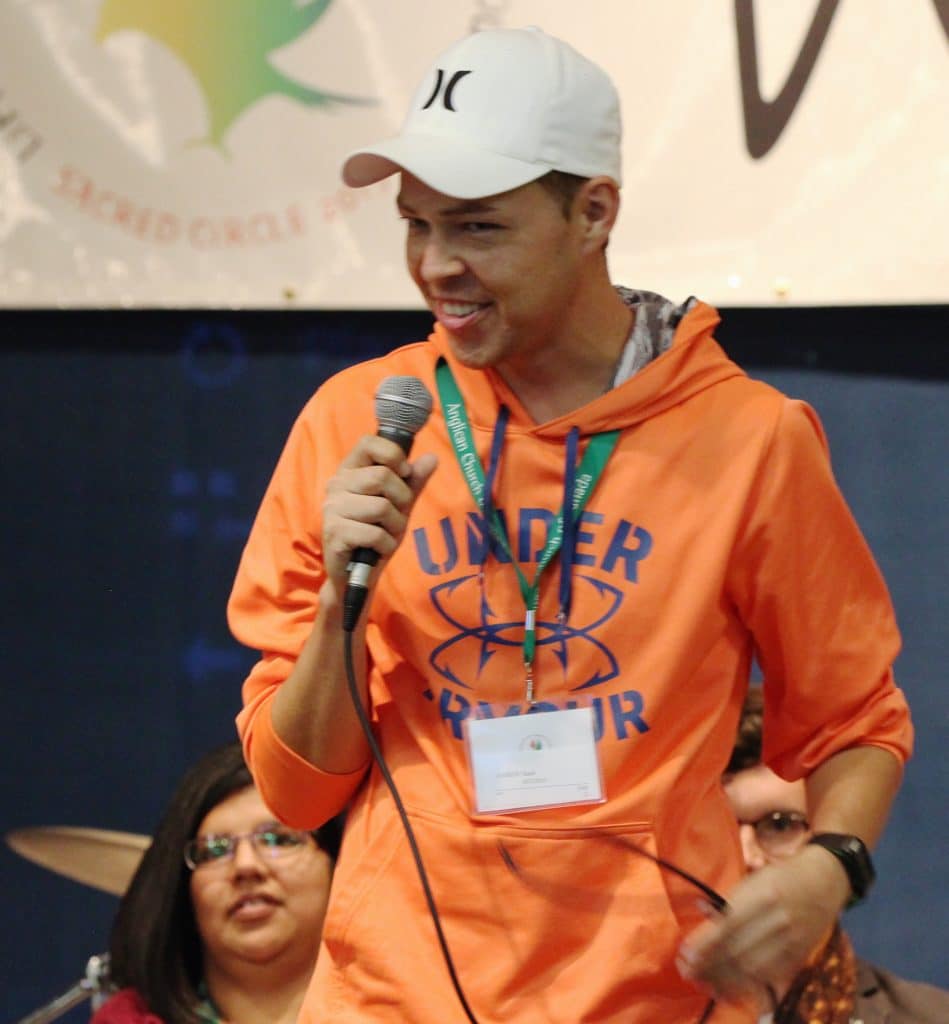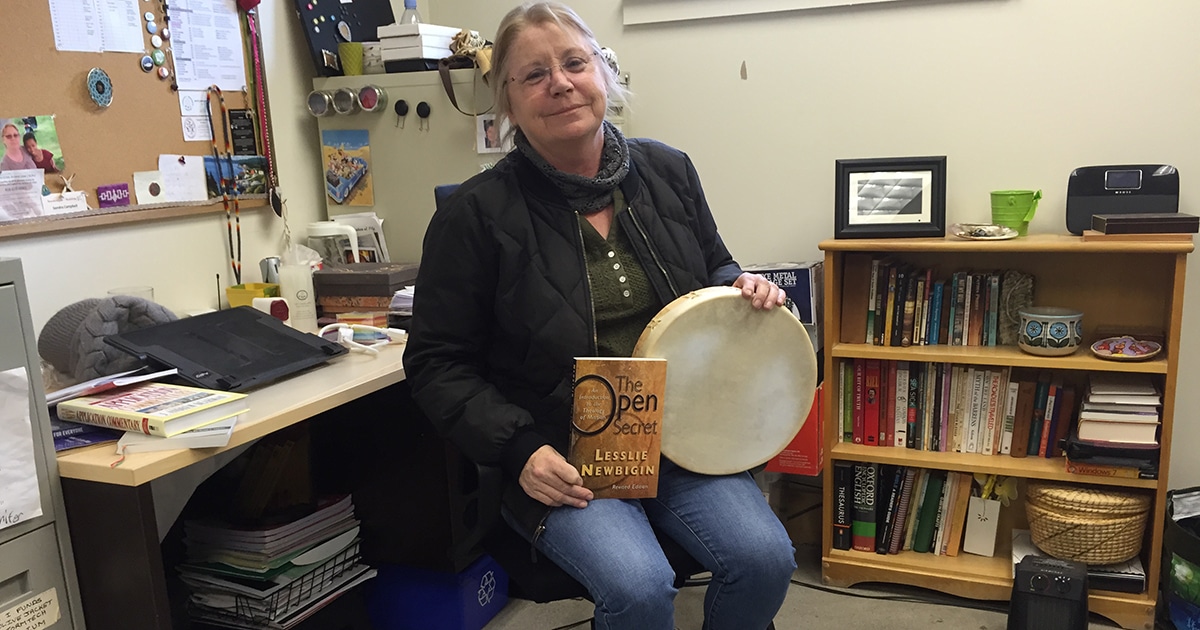Two Anglican theology students have received major boosts towards completing their education and providing spiritual guidance to Indigenous communities, thanks to a generous donation from the Diocese of Western Newfoundland.
The diocese received a return from its portion of the Residential School Settlement Fund amounting to more than $37,000 and chose to use the money to fund bursaries for Indigenous students engaged in theological education. With additional funds from Indigenous Ministries, bursaries of $20,000 each were awarded to students Aaron Sault and Sandra Campbell, currently working to obtain their Master of Divinity (MDiv) degrees.
Bishop Percy Coffin of the Diocese of Western Newfoundland said the donation aimed to alleviate some of the misery caused by the Indian residential schools, many of which were run by the Anglican Church of Canada, by sponsoring students seeking holy orders and helping them avoid the burden of debt.
He emphasized the importance of self-determination, as ordained Indigenous ministers promote healing, identity, and recovery in their own communities.
“We learn from each other, whatever our race or creed is—but for Indigenous people to go and serve Indigenous communities, I think, is more important at this time,” Bishop Coffin said.
“Self-determination has loomed largely at CoGS [the Council of General Synod] and everywhere else, and to equip somebody to do that is important to us, and I hope important to them.”
National Indigenous Anglican Bishop Mark MacDonald and Indigenous Ministries Co-ordinator Ginny Doctor first suggested Sault and Campbell upon hearing that the Diocese of Western Newfoundland was looking to fund bursaries.
“I think it’s great, because there aren’t a lot of resources for our folks to draw from when they’ve experienced a call to the ministry,” Doctor said. “It’s really going to help those two further their education, and to reach their goal of being hopefully priests in the communities they’re serving right now.”
Aaron Sault
Sault, 33, is a student minister at St. Paul’s Anglican Church in Six Nations, Ont. He is currently pursuing studies at the Sandy-Saulteaux Spiritual Centre, travelling there four times per year, and the Vancouver School of Theology, where he attends classes once a year in July.

Prior to pursuing his MDiv, Sault trained and worked as a paralegal, later studying Indigenous studies and political science at Trent University.
His decision to pursue a career in ministry arose, in part, from a subsequent pill addiction that led to a criminal record. Praying to God for help in quitting drugs, Sault successfully cleaned up—yet the experience gave him insight into addiction issues that disproportionately affect many Indigenous communities.
“I know a lot of people who are drug addicts…I still hung out with these people who did pills, even though I didn’t do pills [anymore],” he said. “So it allowed them to start trusting me…They had no shame to be in front of me, so that seemed to be easy for me to get through to them.”
As an Ojibwe-Mohawk, Sault notes numerous parallels between Christianity and Indigenous traditions, such as the Christ-like figure of Deganawida in the Great Law of Peace of the Iroquois Confederacy. He sees many opportunities to draw from both traditions in the ongoing developments towards Indigenous self-determination within the Anglican Church of Canada.
“We have youth coming that are trained to become ministers…to carry on not only the traditions of the Anglican Church, but also the traditions of the First Nations people, so that they can get the full value…the full understanding.”
Along with Doctor and Bishop MacDonald, Sault credits his uncle, the Rev. Phil Sault; Adrian Jacobs, Keeper of the Circle at the Sandy-Saulteaux Centre; and the Six Nations Anglican congregation for helping him on his own spiritual journey. He thanked Bishop Coffin for the bursary funding.
Sandra Campbell
Campbell, a Mohawk from Wahta First Nation, lives in Toronto, where she is studying for her MDiv at Wycliffe College while working part-time as a social and pastoral care worker for Toronto Urban Nativity Ministry (TUNM).
Describing herself as both a Sixties Scoop survivor and intergenerational survivor, Campbell had actively worked in the Toronto Aboriginal community for years, including at an Indigenous men’s residence, before an encounter with the Rev. Canon Andrew Wesley led to her involvement with TUNM.
Her current work includes street outreach, caring for the homeless, working with single parents and youth, visiting hospitals and jails, and one-on-one spiritual mentoring. She also maintains close connections with local Indigenous organizations.
By obtaining her MDiv, Campbell hopes to work more effectively with TUNM while relieving some of the pressing demand for Indigenous ministry in the city. The Rev. Chris Harper currently is Indigenous Native Priest for the Diocese of Toronto, serving as the sole ordained Anglican minister for an Indigenous population of almost 20,000, according to 2011 census data.
“The need’s so high, it’s kind of difficult, because there’s not many of us in Toronto,” Campbell said. “And I’m prepared to do that work, because I’m doing the combination of studying and working.”
She expressed her gratitude and appreciation to the Diocese of Western Newfoundland for providing the bursary funds, describing it as a constructive way for the church to reinforce its commitment to healing, following the 1993 apology of then-Primate Michael Peers for the church’s role in administering the residential schools.
“The question from the Indigenous individuals in the Toronto community is, now that the apology has been done…and the Truth and Reconciliation [Commission] is over, will the church still remain involved with this?” Campbell said. “That’s the question, and their fear [is] that they’ll be forgotten, like the flavour of the month.
“There still is a huge need,” she added. “There are individuals still grieving, still hurt, and that’s where a lot of the spiritual mentoring comes in, on the grieving issues and the anger issues, and the youth are coming out wanting to get involved in the church, and questioning, ‘Where will that fit with my identify of being Aboriginal?’ ”
Particularly for many older members of the Indigenous community, Campbell said, the presence of more Indigenous clergy is a major test of the church’s ongoing commitment to healing and reconciliation.
“I hope something like this will continue on for other Native theology students to help with that repair.”
Interested in keeping up-to-date on news, opinion, events and resources from the Anglican Church of Canada? Sign up for our email alerts .

